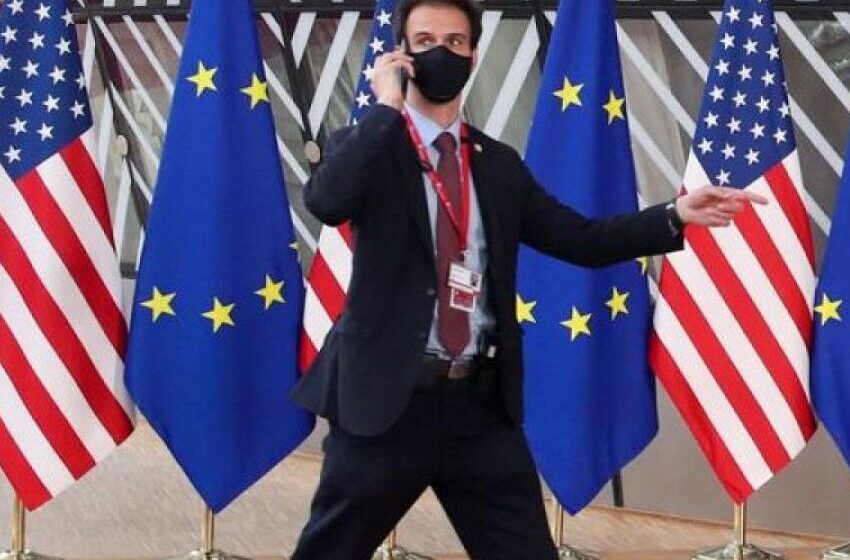
The United States and the European Union will sign a groundbreaking AI agreement
Friday, January 27th, the United States and European Union announced an agreement to accelerate and expand the use of artificial intelligence (AI) to better agriculture, healthcare, emergency response, climate forecasts, and the electric grid.
Shortly before the official announcement, a senior US government official referred to the project as the first comprehensive AI deal between the United States and Europe. Previously, agreements on this subject were limited to specific areas such as enhancing privacy, according to the official.
AI modeling, which refers to machine-learning algorithms that use data to make logical conclusions, could be utilized to enhance the speed and effectiveness of government operations and services.
The senior administration official stated, “The magic here is in constructing joint models while leaving data in place. US data stays in the US and European data stays in Europe, but we can create a model that communicates with both sets of data because the more data and the more diversified the data, the better the model will be.”
Keep Reading
The project will provide governments with more access to more sophisticated and data-rich AI models, resulting in improved disaster response and electric grid management, among other advantages, according to an administration official.
The official indicated the electric system and stated that the United States collects data on how power is consumed, where it is generated, and how to balance the grid’s load to prevent weather-related outages.
According to the official, a number of European nations collect comparable data regarding their own networks. Under the terms of the new agreement, all of this data would be included into a unified AI model that would yield better outcomes for emergency managers, grid operators, and others that rely on AI to improve systems.
Currently, only the White House and the European Commission, the executive arm of the 27-member European Union, participate in the collaboration. In the next months, additional countries will be invited to join, according to a senior administration official.




